MORE has been published in less time about our much beloved Nelson Mandela’s passing than anything else of which I am aware. Much, if not most, has been by people who knew him, but then it has been more about themselves than about Madiba. All the "I knew Madiba" and "when I met Madiba" stories suggest that he spent more time and shared more with more people than is humanly possible.
I, too, had the honour of spending time with him, as I have been blessed to do with other luminaries, and am inclined to claim it as a feather in my cap, a name-dropping inclination I try curtailing.
So why add to the unprecedented volume of tributes? Hopefully to add what has not, as far as I know, been covered.
One of my Madiba stories is best forgotten. As the longest-serving Fort Hare University Council member, I was accorded the honour of sitting between him and preceding African National Congress (ANC) president Oliver Tambo in front of the packed auditorium during a graduation ceremony. Having had little sleep and graduations being staggeringly boring, I disgraced myself by falling asleep.
What I can contribute of substance is insight into where he stood ideologically, and what policy makers might do to honour his legacy. He said and wrote little about his personal convictions and usually made it clear that he described ANC policy rather than his own beliefs.
We do know, for instance, that he endorsed the supportive foreword by Winnie Mandela of the libertarian book, South Africa, the Solution, written by my wife, Frances Kendall, and me.
His personal views are best known to those with whom he discussed them privately.
Most of the two-and-a-half hours he and I spent alone before the soporific graduation ceremony entailed ideological discussion.
People can and sadly do attribute to luminaries what suits their personal agendas. They even deny, distort or lie about what is readily knowable, such as that he endorsed nationalisation in his first post-release speech, whereas he never mentioned it. And they say the Freedom Charter demands socialism and nationalisation, although neither are mentioned, and although it was the policy of most governments, including the apartheid regime.
He explained that instead of the Freedom Charter being socialistic, it would "open … fields for the development of a prosperous non-European bourgeois class (and) for the first time … the non-European bourgeoisie will have the opportunity to own in their own name … mills and factories … and private enterprise will boom and flourish as never before".
As usual, he was venting ANC policy, not personal conviction.
We know that under him, South Africa rose on economic freedom indices and that, according to veteran journalist Allister Sparks, he personally "rejected nationalisation … a full two years before becoming president". In his Rivonia Trial speech, he concealed his personal ideology and denied that the ANC was not communistic.
He understood and upheld the rule of law. He refused, for instance, to sign three bills that were subsequently rejected by the Constitutional Court. He would not have condoned the conflation of legislative and judicial powers in the executive branch of government, which has virtually eliminated any pretence of respect for the separation of powers.
"The rule of law refers to a structural exercise of rule as opposed to the idiosyncratic will of kings and princes," he said. "Even where the latter may express itself benevolently the former is morally and politically superior. Where the rule of law does not apply, rulers assume entitlement to rule; the rule of law, on the other hand, places the emphasis upon structured responsibility and obligation."
Madiba said we should learn from international experience, and presided over market-and rule-of-law friendly policies, and so what his beloved country can do to honour the legacy of its beloved icon is emulate him.
• Louw is executive director of the Free Market Foundation.
MORE has been published in less time about our much beloved Nelson Mandela’s passing than anything else of which I am aware. Much, if not most, has been by people who knew him, but then it has been more about themselves than about Madiba. All the "I knew Madiba" and "when I met Madiba" stories suggest that he spent more time and shared more with more people than is humanly possible.
I, too, had the honour of spending time with him, as I have been blessed to do with other luminaries, and am inclined to claim it as a feather in my cap, a name-dropping inclination I try curtailing.
So why add to the unprecedented volume of tributes? Hopefully to add what has not, as far as I know, been covered.
One of my Madiba stories is best forgotten. As the longest-serving Fort Hare University Council member, I was accorded the honour of sitting between him and preceding African National Congress (ANC) president Oliver Tambo in front of the packed auditorium during a graduation ceremony. Having had little sleep and graduations being staggeringly boring, I disgraced myself by falling asleep.
What I can contribute of substance is insight into where he stood ideologically, and what policy makers might do to honour his legacy. He said and wrote little about his personal convictions and usually made it clear that he described ANC policy rather than his own beliefs.
We do know, for instance, that he endorsed the supportive foreword by Winnie Mandela of the libertarian book, South Africa, the Solution, written by my wife, Frances Kendall, and me.
His personal views are best known to those with whom he discussed them privately.
Most of the two-and-a-half hours he and I spent alone before the soporific graduation ceremony entailed ideological discussion.
People can and sadly do attribute to luminaries what suits their personal agendas. They even deny, distort or lie about what is readily knowable, such as that he endorsed nationalisation in his first post-release speech, whereas he never mentioned it. And they say the Freedom Charter demands socialism and nationalisation, although neither are mentioned, and although it was the policy of most governments, including the apartheid regime.
He explained that instead of the Freedom Charter being socialistic, it would "open … fields for the development of a prosperous non-European bourgeois class (and) for the first time … the non-European bourgeoisie will have the opportunity to own in their own name … mills and factories … and private enterprise will boom and flourish as never before".
As usual, he was venting ANC policy, not personal conviction.
We know that under him, South Africa rose on economic freedom indices and that, according to veteran journalist Allister Sparks, he personally "rejected nationalisation … a full two years before becoming president". In his Rivonia Trial speech, he concealed his personal ideology and denied that the ANC was not communistic.
He understood and upheld the rule of law. He refused, for instance, to sign three bills that were subsequently rejected by the Constitutional Court. He would not have condoned the conflation of legislative and judicial powers in the executive branch of government, which has virtually eliminated any pretence of respect for the separation of powers.
"The rule of law refers to a structural exercise of rule as opposed to the idiosyncratic will of kings and princes," he said. "Even where the latter may express itself benevolently the former is morally and politically superior. Where the rule of law does not apply, rulers assume entitlement to rule; the rule of law, on the other hand, places the emphasis upon structured responsibility and obligation."
Madiba said we should learn from international experience, and presided over market-and rule-of-law friendly policies, and so what his beloved country can do to honour the legacy of its beloved icon is emulate him.
• Louw is executive director of the Free Market Foundation.


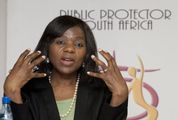
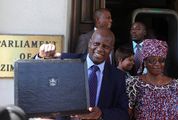
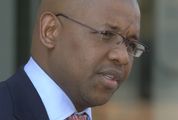
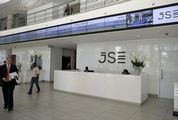

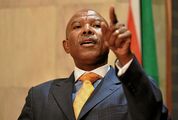
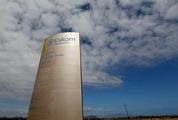
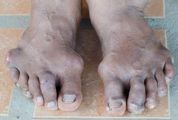
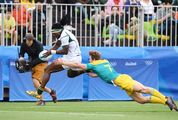

 News and views on the death, and life, of former president Nelson Mandela, with
tributes and photographs
News and views on the death, and life, of former president Nelson Mandela, with
tributes and photographs




